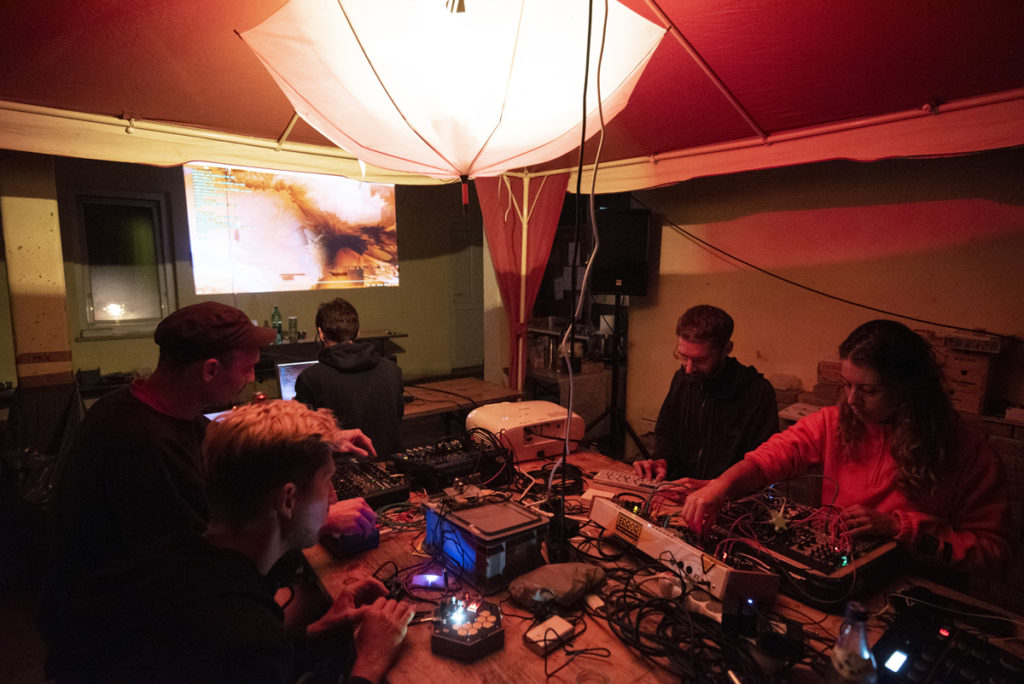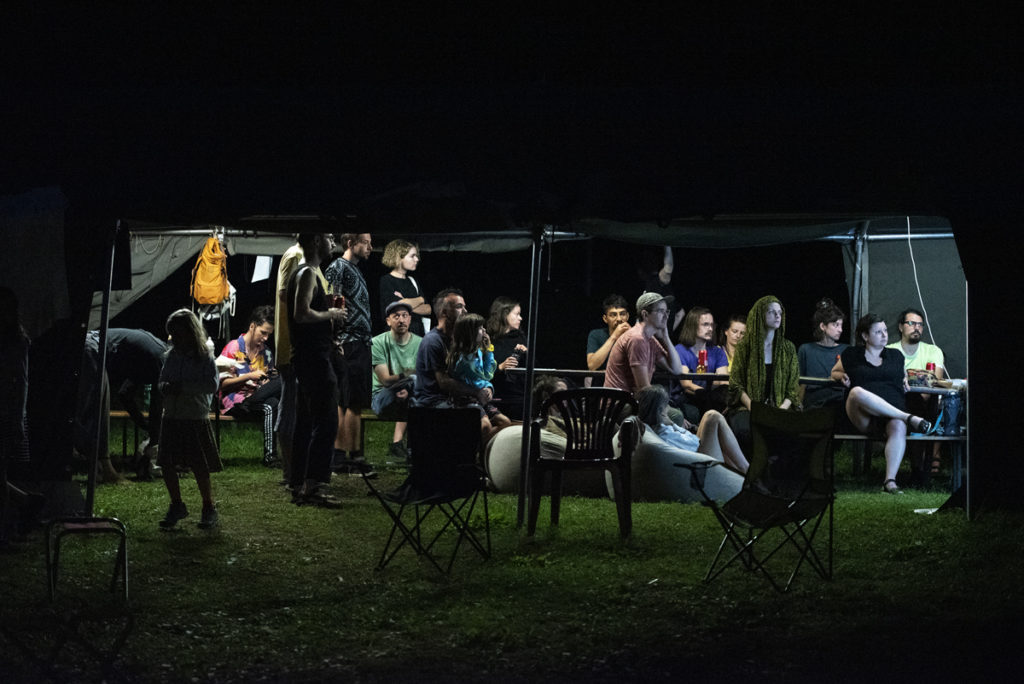We entered the second half of the PIFcamp week with a strong FOMO feeling. The schedule was full of planned workshops already in the morning as if everybody feared there would not be enough time to finish all the work before the seventh edition of PIFcamp concludes. Only three days left…
So the activities started immediately after breakfast when Miha Godec invited the participants to join him in the tent which in the fore-noon sun slowly started turning into a sauna. The participants didn’t mind the heat though and were keen to follow the beginner’s guide to VR and 360 panorama videos. The workshop offered an overview of possibilities and tools and allowed everybody to try on the helmets and gain a first-person VR experience.
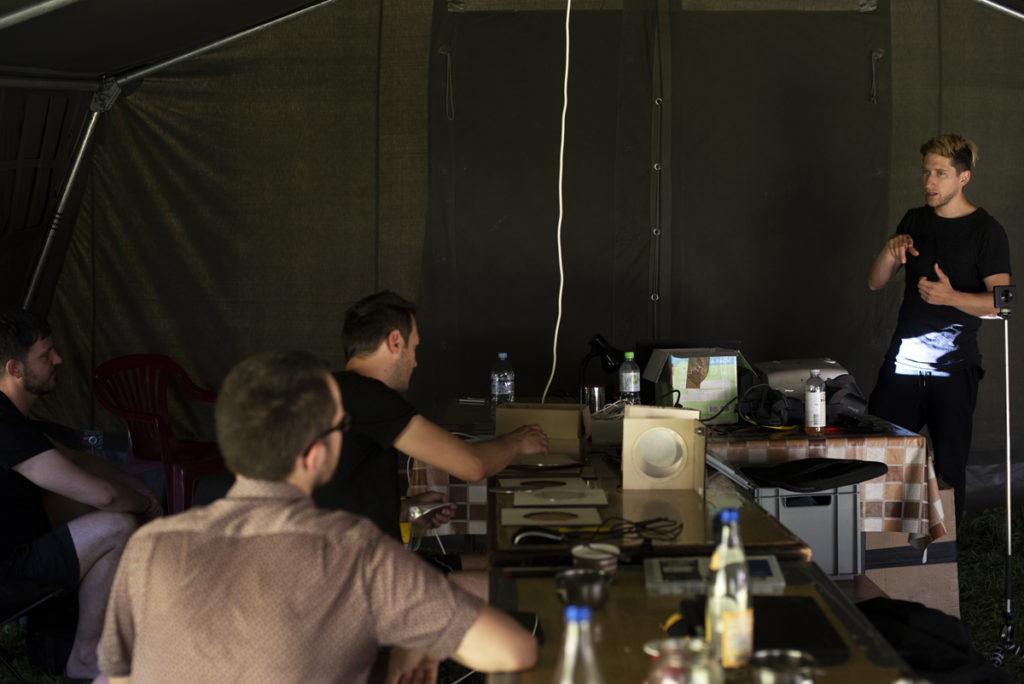
Just before noon Hannah and Julian organized a workshop where participants learned how to craft a paper speaker…
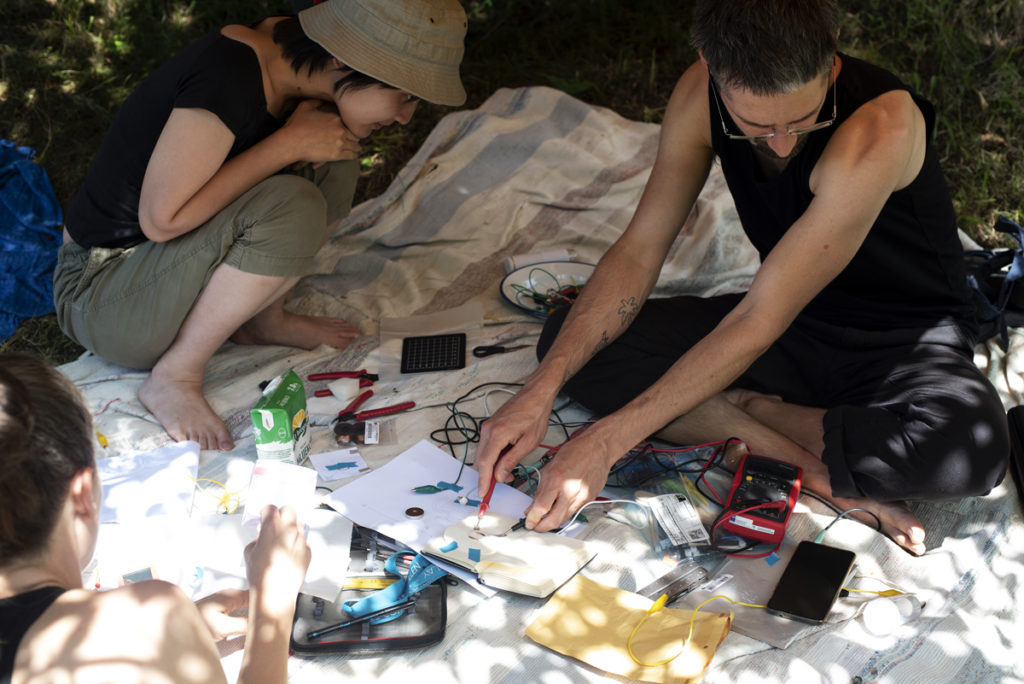
…while on the other side of the camp a kids-only workshop was taking place. Monica, Marta and Anna taught the PIFcamp’s youngest how to build their own CHICKEN ROBOTS! Look around you, the chicken robots are among us, and rumors are spreading they will soon show up again…
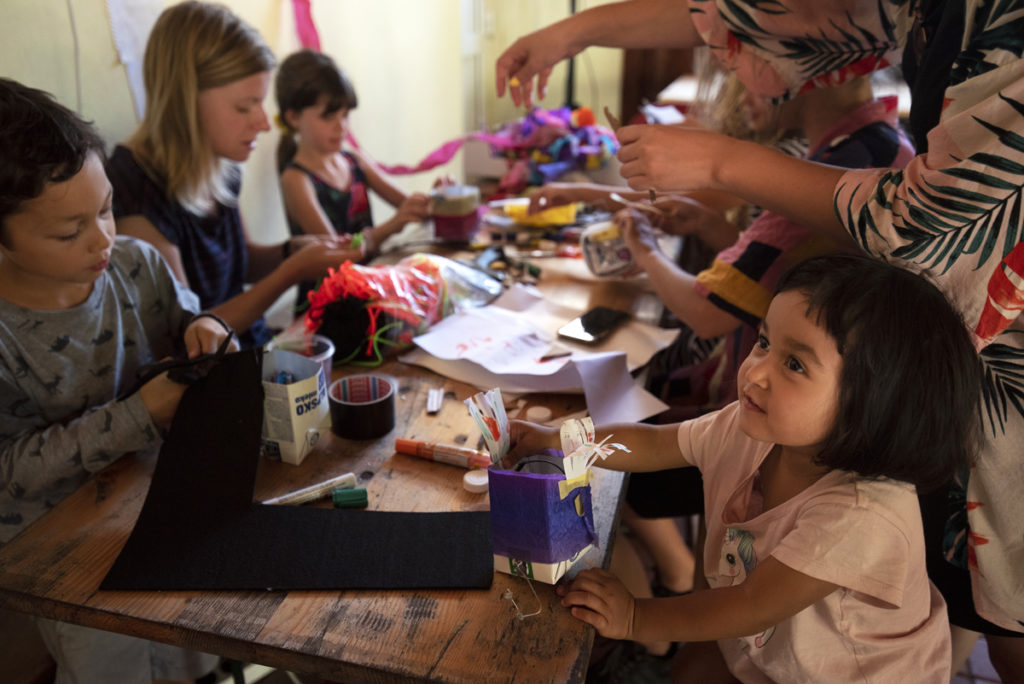
Right after lunch, Qianxun Chen held a workshop on textual seedling, that – unfortunately – had to be less practical than expected, due to server issues. Nonetheless, the idea of “growing” a digital plant in your browser, based on natural language associations, fascinated all the participating campers.
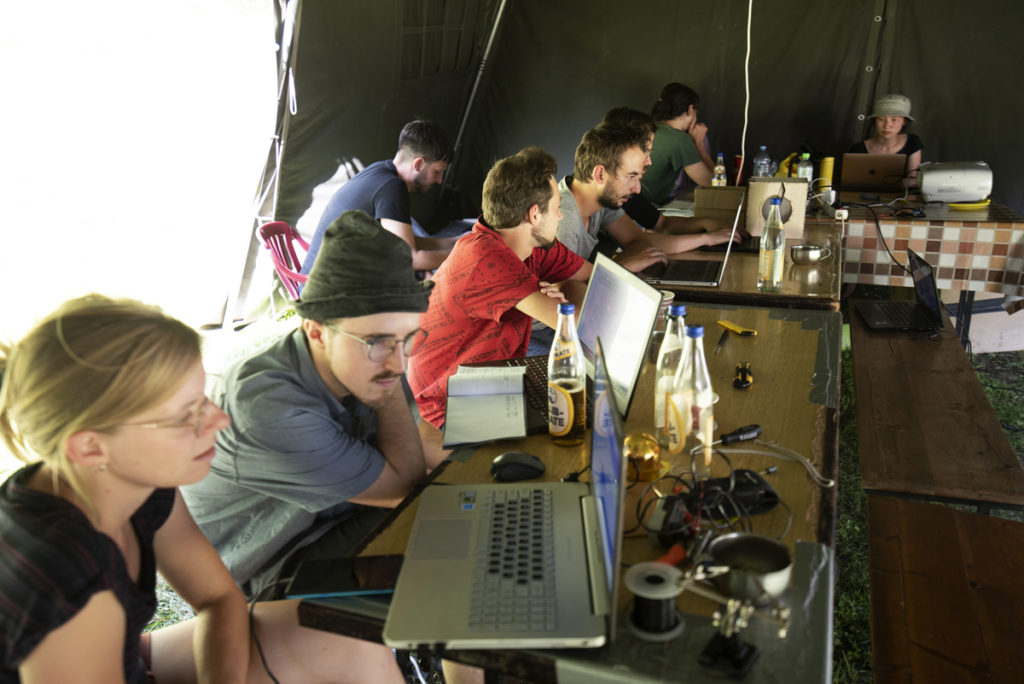
The meme specialist Maggie Kane continued with her etching party where participants got to etch their favorite memes on a PCB board.
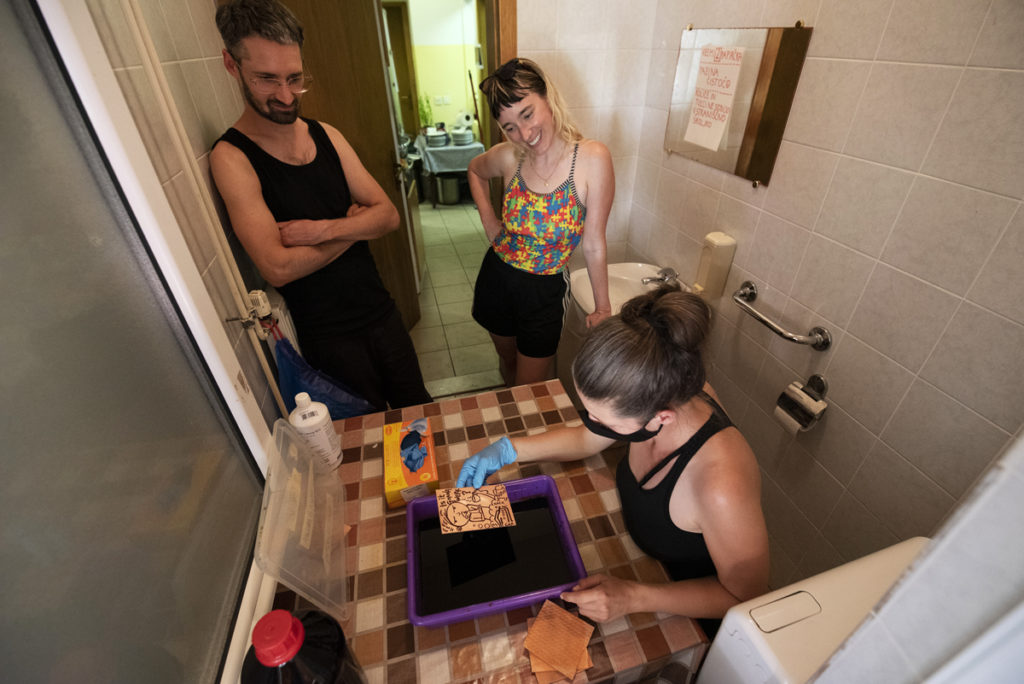
After dinner, Stefanie presented a short lecture on ethical hardware, that focused on her experiences and challenges of working on the intersection of feminism and technology. Besides the issues related to gender inequality in the tech field that she and her colleagues are addressing with workshops and exhibitions at Mz* Baltazar’s Lab in Vienna, Stefanie’s lecture touched upon the questions of the ecological impact of technologies, as the materials these consist of, copper, for example, are tied to chains of ecological and social exploitation. “The future is that we look for substitutes for the materials and components that are not ethically sourced”, stressed Stefanie, while showing the interested PIFcrowd some examples of art projects that test out different, ecologically friendlier alternatives or make their works out of recycled materials. As an example of the latter, she pointed out a project by one of the PIFcamp-goers present, Irene Posch’s The Embroidered Computer that consists of (textile) relays, similar to early computers before the invention of semiconductors, and is solely built from a variety of metal threads, magnetic, glass and metal beads. The project is inspired by traditional crafting routines and patterns and explores the possibilities of re-using historic gold embroidery materials and knowledge to craft a programmable 8-bit computer.
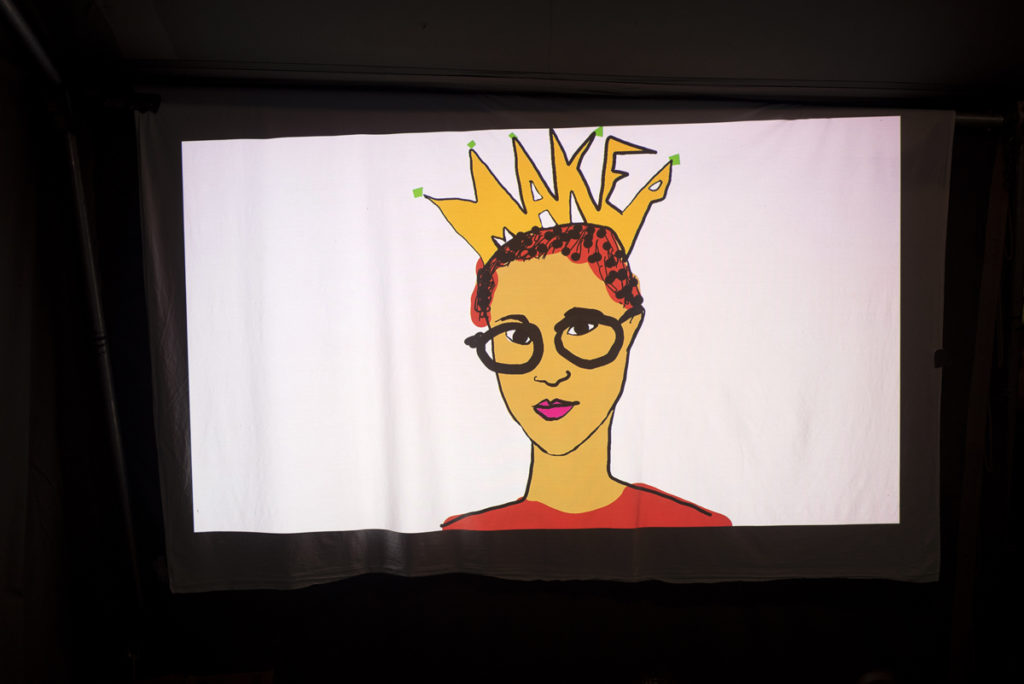
The jam session involved even a larger group of participants this evening. Blaž Pavlica joined in as well with his live-coded visuals, and the party went on long after the bloggers went to bed.
